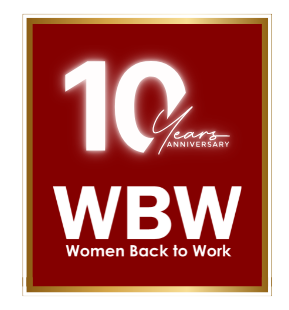Mom return to work program
Have you ever heard of a mom return to work program? Returnships, as they are often called, commonly run for a couple of months, and often results in full-time employment for the Returner. These programs offer experience and networking opportunities to workers – typically mothers – who have been out of the workforce for a lengthy timeframe.
Employment gaps on a resume can sometimes have a negative stereotype associated with it. However, many companies are beginning to recognize the importance of career breaks for motherhood. When returnship candidates have a gap in their work history, hiring managers look past it.
Back to-work programs for moms are a successful way for managers to direct their representatives back to the workplace in the wake of raising children. With organized help and important advantages, moms get the assistance they need as they sort out some way to balance nurturing and a career.
Understanding the importance of a mom return to work program is crucial if you want top-tier candidates in your organization.
Working mothers were most addressed in the workforce in 2000 yet have been vanishing from that point forward. However, the Modern family index reports 92% of eager mothers mean to get back to work with a similar responsibility as prior to conceiving.
This research shows new mothers need to work, and it focuses to the absence of assets and backing for the progress back to work as a main source of female under-portrayal in corporate initiative.
A new review uncovered the effect that re-visitation of work programs for moms and corporate kid care advantages can have on organizations:
- Maintenance: 90% of respondents show they would be bound to keep on working for their company whenever offered business supported childcare.
- Prosperity: 91% of respondents concur that childcare benefits help to deal with their feelings of anxiety.
- Work fulfilment: 95% say manager supporting childcare gives them added adaptability at work, and 85% say it means a lot to their work fulfilment.
Returning to work in the wake of having a child is a hard choice for new mothers. One ongoing review detailed over 33% of women are declining to get back to work by any stretch of the imagination.
This is one motivation behind why women are seriously under-addressed in administration positions, despite the fact that women make up practically 60% of school graduates.
Career oriented women are surrendering work since they cannot envision a method for dealing with the requests of work while really focusing on their children. From motherhood to providing care, there are many justifications for why women – particularly mothers – take long breaks before entering the workforce again.
It is no astonishing reality that maternity leaves intensely influence women jobs. Women require between two weeks to two years to transition back to work in the wake of pregnancy . Furthermore, for the individuals who returned, something like 44% say the hardest part was shuffling parental obligations with work.
Businesses have valid justification to be concerned. There are somewhere in the range of 30 and 60 million working parents in the workforce, and many are in administrative roles where finding a substitution can cost multiple times a worker’s compensation.
Representative turnover because of the tensions of nurturing is a significant weight on organizations, and it is depleting associations of female pioneers.
Among the new mothers who decide to get back to work, family clashes are causing huge efficiency misfortunes across enterprises, preventing opportunities, and costing organizations millions.
Besides, new moms who return to their professions frequently leave their boss for competitorswith better childcare benefits, regardless of whether it requires accepting a decrease in salary.
Offering parental leave as part of company culture has held a few workers, yet it is anything but an ideal arrangement. To keep significant representatives and gain by their true capacity, managers need to offer basic help when parents are reentering the workforce.
Returnship programs for moms guarantee promising female representatives can track down the pathway back to their vocation.
Benefits for employers
A family-accommodating society is a priceless business differentiator according to dedicated workers and qualified competitors. Offering representative childcare advantages and return-to-work programs assists unexperienced parents with staying in their jobs and shows more youthful representatives on the ascent that working parents are needed, welcome, and esteemed.
Business advantages of return-to-work programs for moms include:
- A bigger talent pool: Returning to workforce programs attract qualified women to basic positions, giving admittance to a more extensive market of promising pioneers.
- An upper hand: Offering corporate kid care and return-to-work programs for moms makes benefits-envy, making the most gifted work competitors bound to incline toward a business.
- Maintenance of future pioneers: Supporting representatives in their return from parental leave fabricates dependability among persuaded working parents and future pioneers wanting to become parents.
Reach out to Women back to Work today in order to fulfil all your recruitment needs.
